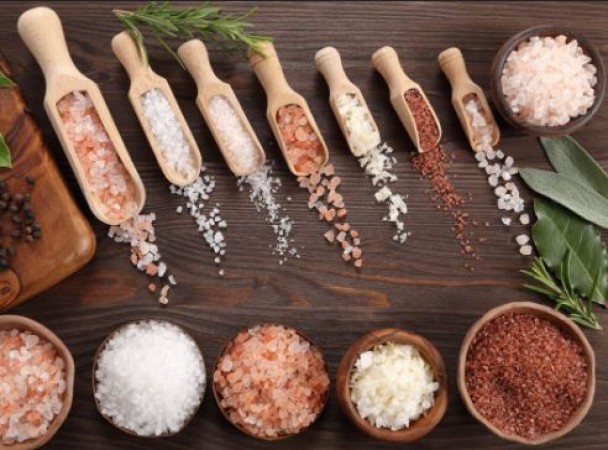
Salt is an essential ingredient in our diets, enhancing flavor and serving crucial functions in the body. However, not all salts are created equal. Each type of salt has unique properties and benefits. Understanding these can help you make better choices for your health and culinary needs. Here’s a detailed look at five common types of salt and their benefits.
1. Rock Salt (Senda Namak)
Overview: Rock salt, also known as Sendha Namak, is a natural salt that is minimally processed and retains a high mineral content. It is commonly used in traditional medicine and during religious fasting periods.
Benefits:
Mineral Rich: Rock salt contains a variety of essential minerals, including calcium, potassium, magnesium, iron, zinc, copper, and selenium. These minerals can help improve digestive health, reduce inflammation, and support overall wellness.
Digestive Health: It can aid in digestion, reduce symptoms of indigestion, and help alleviate issues like acid reflux and constipation.
Skin Health: Its mineral content can contribute to healthy skin by helping to balance electrolytes and improve hydration.
Usage: Ideal for culinary use in cooking and seasoning, especially in traditional dishes and during fasting.
2. Sea Salt
Overview: Sea salt is produced by evaporating seawater and is less processed than table salt. It often contains trace minerals that can vary depending on the source of the seawater.
Benefits:
Mineral Content: Sea salt is rich in minerals like magnesium, potassium, and calcium. These minerals can support bone health, enhance hydration, and improve skin texture.
Skin Care: Its exfoliating properties make it useful in skincare routines for removing dead skin cells and improving skin texture.
Flavor: The unique texture and flavor of sea salt can enhance the taste of food.
Usage: Suitable for seasoning and finishing dishes. It’s often preferred in gourmet cooking due to its distinctive flavor and texture.
3. Iodized Salt
Overview: Iodized salt is regular table salt that has been fortified with iodine, an essential nutrient for thyroid function.
Benefits:
Thyroid Health: Iodine is crucial for the production of thyroid hormones, which regulate metabolism, growth, and development.
Preventing Deficiency: Iodized salt helps prevent iodine deficiency, which can lead to thyroid gland issues such as goiter and hypothyroidism.
Cognitive Health: Adequate iodine intake supports cognitive function and overall brain health.
Usage: Commonly used in everyday cooking and food preparation. It’s a staple in most households to ensure adequate iodine intake.
4. Black Salt
Overview: Black salt, also known as Kala Namak, is a type of rock salt that has been heated and processed to develop a dark color and distinctive flavor.
Benefits:
Digestive Aid: Black salt is known for its ability to aid digestion, reduce bloating, and relieve symptoms of indigestion.
Electrolyte Balance: It helps in maintaining the balance of electrolytes in the body, which is essential for muscle function and hydration.
Detoxification: It can help detoxify the body by flushing out toxins and supporting liver function.
Usage: Often used in Indian cuisine and in dishes where a smoky, umami flavor is desired. It is also used in traditional remedies.
5. Pink Himalayan Salt
Overview: Pink Himalayan salt is a type of rock salt mined from the Khewra salt mine in Pakistan. Its pink color comes from trace minerals present in the salt.
Benefits:
Mineral Rich: Contains over 80 essential minerals and trace elements, including potassium, magnesium, and calcium, which contribute to overall health.
Hydration: Helps in maintaining fluid balance in the body, which can prevent dehydration.
Stress Relief: It is believed to support stress relief and improve sleep quality by balancing the body’s pH levels and promoting relaxation.
Skin Benefits: Used in bath salts and skincare products to soothe and exfoliate the skin.
Usage: Popular in cooking, as well as in bath salts and wellness products. It can be used as a finishing salt or in recipes that benefit from its mineral-rich content.
Choosing the right type of salt can have a significant impact on your health and culinary experiences. Each type offers unique benefits and can be incorporated into your diet and lifestyle in various ways. When selecting salt, consider your specific health needs, dietary preferences, and culinary uses to make the most informed choice. Always remember to consume salt in moderation to maintain a balanced and healthy diet.
Chandipura Virus Spreads to Rajasthan After Surge in Gujarat Cases
Kerala Health Minister Veena George Injured in Minor Accident Amid Wayanad Landslide Tragedy
National Raspberry Cake Day: How Are Raspberries Good for You?